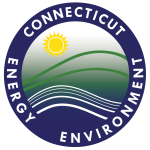Connecticut Waste Paper Processors
Paper constitutes the largest single component of the municipal solid waste stream - over one-third by weight. Markets exist for many types of waste paper and by recycling the paper into new paper, rather than disposing it, the amount of waste requiring disposal will be reduced, fewer trees will be cut down for paper production, less energy will be used to produce new paper, less pollution will be emitted into the air and water in the production of new paper, and green house gas emissions will be reduced.
Connecticut law requires the recycling of three types of paper: high grade white office paper (non residential generators only); old corrugated cardboard; and old newspapers. If you generate large amounts of other types of paper you might want to look at recycling that paper as well, remember you will be saving disposal space, conserving energy and natural resources, and maybe saving on your disposal costs as well. Collecting and marketing paper for recycling is only half of the cycle - recycling does not work, unless you purchase products made with the material you are collecting and recycling. For additional information on buying recycled products and on setting up a program at your place of work to recycle newspaper, cardboard, office paper, etc. please refer to DEEP's fact sheets on those topics.
Waste paper is traded on a world wide commodity basis through a network of brokers and exporters. The paper market has stringent quality requirements for its approximately 51 grades of paper stock and additional 33 specialty grades. The five categories of paper that are most relevant to general business recycling programs are:
- Corrugated cardboard used to ship merchandise. For maximum value, contaminants such as Styrofoam, packing material, metal, wax, plastic coated cartons, and junk should be removed.
- Old newspaper as is delivered to a household. Newspaper must be clean, dry, and stored out of direct sunlight. Contaminants such as junk mail, plastic bags, telephone books, magazines, etc. should be removed.
- High grade office paper includes white typing, writing, and copy paper, white scratch paper, tab cards, index cards, and computer paper. Prohibited materials include carbon paper and NCR forms, blueprint paper, tape and glue, post-it notes, newspaper, corrugated, tissues, towels, and paper cups.
- Sorted office paper is similar to high grade office paper but includes both colored and white paper.
- Mixed office paper office paper recovered from offices and institutions in an unsorted, but clean form.
Waste paper recovered from mixed municipal waste generally does not meet industry specifications for use by paper mills in the United States. Best results are achieved through source separation programs. Paper markets fluctuate with supply and demand. When the supply of waste paper is plentiful, markets retain suppliers of high quality materials who can guarantee large tonnages of clean paper free of contaminants. Therefore, it is advisable to design source separation programs to maximize quantity of waste paper.
The paper processors in Connecticut listed below have facilities to sort, bale, and transport waste paper. Not all processors deal in all grades of waste paper. Paper brokers are in contact with mills and know the baling and quality specifications of paper mills. Brokers determine who is buying and selling each grade of paper and facilitate sales by arranging transportation and payment. The Connecticut paper brokers know the needs and specifications of the Connecticut mills as well as other northeast, U.S., and international user of waste paper. If you generate large quantities of specific grades of paper you might want to consider baling your own paper and marketing it directly to a mill; call the DEEP Recycling Office at (860) 424-3366 for additional information on this option.
List of Connecticut Waste Paper Processors
The following list includes Connecticut waste paper processors that the Department is aware of. This is only a partial listing and by providing it to you, the Department of Energy and Environmental Protection is not recommending these companies over any others.
| Advanced Recycling 307 White Street Danbury, CT 06810 Contact: Don Arciola (203) 797-0378 |
Murphy Road Recycling 1300 Seaview Ave. Bridgeport. CT 06606 Contact: Bill Petrone (860) 249-2762 |
Stratford Bailing 80 Garfield Ave. Stratford, CT 06615 (203) 377-7491 |
| Murphy Road Recycling 655 Christian Lane Kensington, CT 06037 Contact: Bill Petrone (860) 249-2762 |
Hanna Paper Recycling, Inc. 718 North Colony Wallingford, CT 06492 Contact: Jim Kiernan (203) 265-2644 |
Willimantic Waste Paper Co. 73 Rogers Road Norwich, CT Contact: Tom DeVivo (860) 423-4527 |
|
Murphy Road Recycling
123 Murphy Road Hartford, CT 06114 Contact: Bill Petrone
(860) 249-2762 |
Marcus Paper Co. 93 Wood St. P.O. Box 8986 New Haven, CT 06532 Contact: Michael Zamkov (203) 934-6351 |
Willimantic Waste Paper Co. P.O. Box 239 Willimantic, CT 06226 Contact: Tom DeVivo (860) 423-4527 |
| City Carting & Recycling, Inc. 61 Taylor Road Place Stamford, CT 06906 Contact: Joe Fiorillo (203) 324-4090 |
Content Last Updated February 2020

